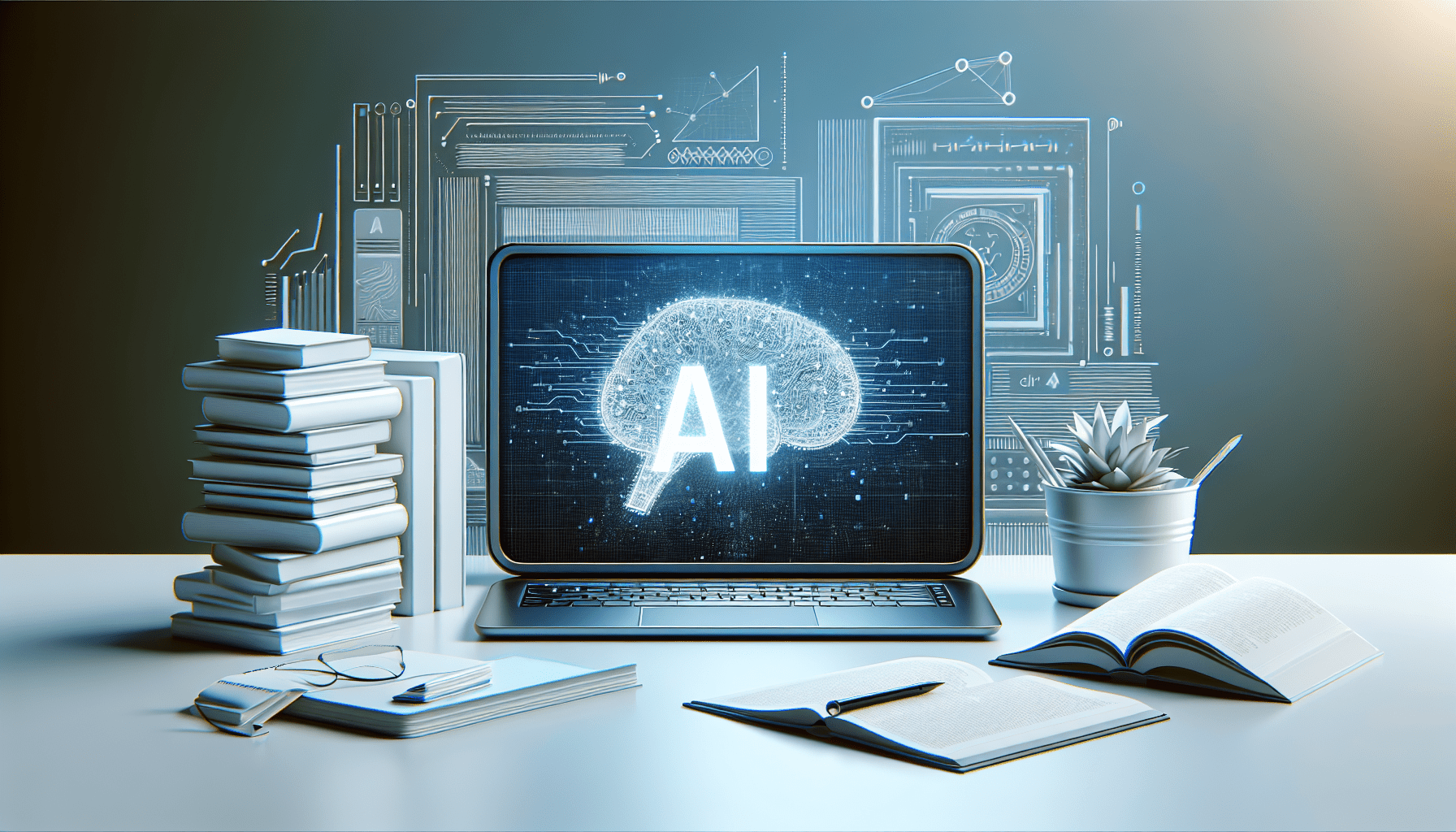Are you eager to dive into the exciting world of artificial intelligence but are overwhelmed by the complexity of it all? Well, fret no more! In this article, you will discover the most effective and efficient ways to learn AI rapidly and effortlessly. Whether you’re a beginner or an experienced developer, these tips and resources will guide you through the learning process with ease. Get ready to unlock the endless possibilities of AI technology and enhance your skillset in no time!
Learn AI Rapidly and Effortlessly
Have you ever wondered how you can learn Artificial Intelligence (AI) quickly and easily? You’re in the right place! In this article, we will guide you through the process of mastering AI in a rapid and effortless manner.

Understanding the Basics of AI
Before diving into the world of AI, it’s essential to have a solid understanding of the basics. AI refers to the simulation of human intelligence processes by machines, especially computer systems. It involves the ability of a machine to learn from experience, akin to humans.
Understanding the basics of AI will provide you with a solid foundation as you progress through your learning journey. You’ll learn about the different branches of AI, such as machine learning, deep learning, and neural networks.
Choosing the Right Learning Resources
When embarking on your AI learning journey, it’s crucial to choose the right learning resources that cater to your needs and preferences. There are a plethora of online courses, tutorials, books, and forums dedicated to AI education.
Take the time to research and explore various learning resources to find the ones that resonate with you. Consider opting for interactive platforms that offer hands-on projects and practical exercises to enhance your learning experience.
Hands-On Projects and Practical Applications
One of the most effective ways to learn AI rapidly is by engaging in hands-on projects and practical applications. Building real-world projects will enable you to apply theoretical concepts and develop practical skills.
Consider working on projects such as image recognition, natural language processing, or predictive modeling. These projects will not only bolster your AI knowledge but also showcase your capabilities to potential employers or collaborators.
Collaborating with Peers and Experts
Learning AI doesn’t have to be a solitary journey. Collaborating with peers and experts in the field can greatly accelerate your learning process. Join online AI communities, attend workshops, and participate in hackathons to connect with like-minded individuals.
Collaborating with peers will allow you to bounce ideas off one another, receive feedback on your projects, and stay motivated throughout your learning journey. Additionally, learning from experienced AI professionals can provide valuable insights and guidance.
Understanding Machine Learning Algorithms
Machine learning is a fundamental aspect of AI that involves the development of algorithms that enable machines to learn from data and make predictions. Understanding the various machine learning algorithms is essential for mastering AI.
Familiarize yourself with popular machine learning algorithms such as linear regression, decision trees, support vector machines, and neural networks. Learn how to apply these algorithms to different datasets and problems to gain a comprehensive understanding of machine learning.
Exploring Deep Learning and Neural Networks
Deep learning is a subset of machine learning that focuses on neural networks with multiple layers. Neural networks are inspired by the human brain and are capable of learning complex patterns and representations.
Dive into the world of deep learning by exploring topics such as convolutional neural networks (CNNs), recurrent neural networks (RNNs), and generative adversarial networks (GANs). Experiment with building and training neural networks to understand their potential applications in AI.

Implementing AI in Real-World Scenarios
To truly master AI, it’s crucial to implement AI solutions in real-world scenarios. Consider applying AI techniques to solve problems in domains such as healthcare, finance, marketing, or autonomous vehicles.
Implementing AI in real-world scenarios will give you hands-on experience and help you understand the practical implications of AI technology. You’ll learn how to design AI solutions, collect and preprocess data, train models, and evaluate their performance in real-world settings.
Staying Up-to-Date with AI Trends and Developments
The field of AI is constantly evolving, with new trends and developments emerging at a rapid pace. To stay ahead of the curve, it’s essential to stay up-to-date with the latest AI trends, research papers, and technologies.
Follow reputable AI blogs, subscribe to AI newsletters, and attend conferences and webinars to stay informed about the latest advancements in AI. Engaging with the AI community will broaden your knowledge and keep you informed about cutting-edge developments in the field.
Leveraging AI Tools and Frameworks
AI tools and frameworks play a crucial role in simplifying the development and deployment of AI solutions. Leveraging popular AI tools and frameworks will streamline your workflow and enable you to focus on solving complex problems.
Explore tools such as TensorFlow, PyTorch, scikit-learn, and Keras for building and training machine learning and deep learning models. These tools offer a wide range of functionalities and resources that can accelerate your AI projects and experiments.
Building a Strong AI Portfolio
As you progress in your AI learning journey, it’s important to build a strong portfolio showcasing your skills and projects. A well-curated AI portfolio will demonstrate your expertise, creativity, and problem-solving capabilities to potential employers or clients.
Include a diverse range of AI projects in your portfolio, highlighting your proficiency in different areas such as computer vision, natural language processing, and reinforcement learning. Provide detailed descriptions of your projects, including datasets used, algorithms implemented, and results achieved.
Networking and Building Relationships in the AI Community
Networking and building relationships in the AI community can open up a world of opportunities for collaboration, mentorship, and career advancement. Connect with AI professionals, researchers, and enthusiasts to expand your network and exchange knowledge.
Attend AI meetups, conferences, and workshops to network with industry experts and like-minded individuals. Engage in discussions, share your insights, and seek advice from experienced professionals to foster meaningful relationships in the AI community.
Setting Clear Learning Goals and Milestones
To learn AI rapidly and effortlessly, it’s essential to set clear learning goals and milestones to track your progress. Establishing specific objectives will help you stay motivated, focused, and accountable throughout your AI learning journey.
Break down your learning goals into smaller, achievable milestones such as completing an online course, building a project, or contributing to an open-source AI repository. Celebrate your accomplishments as you reach each milestone, and adjust your goals as needed to stay on track.
Embracing a Growth Mindset and Continuous Learning
Embracing a growth mindset and a commitment to continuous learning are key factors in mastering AI. Cultivate a mindset that embraces challenges, sees failures as opportunities for growth, and values perseverance in the face of obstacles.
Stay curious, be open to new ideas, and continuously seek opportunities to expand your AI knowledge and skills. Take on new challenges, experiment with advanced techniques, and never stop learning and growing as an AI practitioner.
Conclusion
Learning AI rapidly and effortlessly is an achievable goal with the right mindset, resources, and dedication. By understanding the basics of AI, choosing the right learning resources, engaging in hands-on projects, collaborating with peers and experts, and staying up-to-date with AI trends, you can accelerate your AI learning journey and achieve your goals in the field of artificial intelligence.
Remember to set clear learning goals, build a strong AI portfolio, network with the AI community, and embrace a growth mindset to propel yourself towards success in AI. With commitment, perseverance, and a passion for learning, you can master AI and make a meaningful impact in this dynamic and exciting field.






Leave a Reply